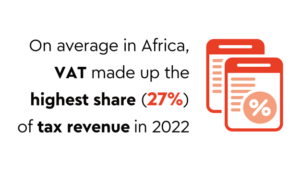The tax environment has changed in Africa – as well as around the globe – as a result of fallout from the global financial crisis that has left many jurisdictions with fiscal deficits. Some 73% of CFOs are reporting a rise in the frequency of tax audits from governments worldwide and Africa, according to KPMG.
The changes in Africa’s tax regimes are driven mainly by the African Tax Administration Forum, a platform to promote and facilitate mutual co-operation among the continent’s tax administrations, and the fact that SARS in South Africa has become a world-class revenue authority with substantial technology and resource investment.
In the June 2014 edition of TaxTalk, KPMG’s head of tax controversy and dispute resolution Johan van der Walt explains some of the drivers behind the increasing number of disputes between firms and state tax authorities. He says taxation and morality are no longer delinked. Concepts such as ‘ethical taxpaying, reputational risk and tax risk appetite’ have emerged in a world polarised by growing inequality.
‘A company’s tax affairs have effectively become “everybody’s business”. It is no longer feasible to manage tax solely as an internal/domestic issue.’ He added that pressure groups and NGOs now want to know if a firm is ‘a good corporate citizen’.
In a September 2014 press release, Warren Taylor, EY global compliance and reporting leader for Africa, said that inbound multinationals that operate in Africa face a set of additional challenges around tax compliance and reporting.
‘Broadly, these challenges are the reliance on manual tax compliance, the lack of precedent (and consistent application thereof), language barriers, local accounting requirements and an increase in tax audits.
‘Whilst there is a shift to electronic tax compliance (for example in Kenya), there is still a strong reliance across Africa on manual filings, where taxpayers or their representatives have to physically complete and file returns. Added to this would be the physical payment process where cheques need to be drawn and handed in at a revenue authority office.
‘This becomes particularly challenging when a multinational does not have a physical presence in-country, a growing trend as businesses transform their finance functions and move resources to centres of excellence or low cost shared services centres,’ he says.
The practical challenges of operating across Africa are there, but can be overcome using local knowledge and lessons learnt’
According to Taylor, the absence of precedent – a common phenomenon in Africa – boils down to the lack of ‘available court precedent to manage a complex dispute with cross-border legislation’. Language barriers pose another problem as more often than not, tax returns and financial statements ‘need to be filed in local languages’. Furthermore, many African countries have different financial statement reporting requirements, which presents yet another challenge.
‘Companies starting to operate in a new country need to open sales and marketing operations in-country, while outsourcing non-core finance and tax functions to a reputable in-country service provider, which can protect a company’s brand in-country by ensuring compliance with the local laws and regulations,’ says Taylor.
He advises that businesses currently transforming their finances in accordance with the globalised economy would do well to adopt a ‘standardise, globalise and digitise’ mantra that extends to all components of compliance and reporting – as opposed to making only income tax returns ‘global and efficient’.
Of all the companies surveyed by EY, just under two-thirds had global processes for tax accounting in place. ‘However, many omitted income tax compliance, value-added tax returns, financial statements and other important filings. The practical challenges of operating across Africa are there, but can be overcome using local knowledge and lessons learnt.’
PwC supports this view. In its 2014 report, Overview of VAT in Africa, it describes the continent’s tax legislation regulation environment as complex.
According to the report: ‘In the PwC tax survey (2013), matters of attaining certainty, clarification and verification concerning the application of the tax laws emerged as one of the most significant challenges.
‘Africa’s economy has rapidly escalated as various markets are on the rise competing to satisfy growing consumer needs. Regulating tax laws are fast becoming problematic for MNEs [multinationals] as well as SMEs, as tax legislation now has to be adjusted to compliment the influx in the economy.’
However, as this process is generally lengthy, ‘businesses entering the market are faced with imprecise challenges of having to adapt to the various African countries’ tax regulations’.
Another area where multinationals in Africa need advisory services is cross-border mergers and acquisitions (M&A). As a report on EY’s website states, these transactions often lead to complex legal, regulatory, labour and tax issues.
Furthermore, in an African context, ’the complexity level can increase significantly because the legal and regulatory framework may not be clear, current or uniformly adhered to’, says Craig Miller, EY director of transactions tax. He adds that insufficient planning can ‘diminish the value of the investment by up to 20%’.
Miller says, however, that ‘planning for withholding taxes, capital gains tax on exit and, where possible, the use of interest-deduction techniques’ can help ensure the effectiveness of an African acquisition tax.
Debt pushdown is a useful deduction technique, he says, albeit one that is generally difficult to achieve, as most African countries ‘do not have group relief rules or rules that provide for tax consolidation or group taxation’.
Instead, he suggests that ‘consideration should be given to extraction of value in an efficient manner including minimising any tax upon disposal of the interest in the investee. At the very least, an investor should aim to be able to extract, at its discretion (and clearly subject to commercial requirements) the amount actually invested free of in-country taxes, which can be high.
‘It is crucial that the tax effect of extracting value from the respective African investee jurisdiction is included in the models and proposals presented to boards when contemplating the viability of the foreign investment,’ says Miller.
An online KPMG article, published on their website and titled Taxation on Cross-border M&A, explains how changes to South Africa’s legislative tax framework have ‘significantly affected’ the local M&A environment.
The most pertinent changes relate to the ‘permanent restriction on interest deductibility’ with regard to some transactions and ‘the introduction of a withholding tax’ on specific transactions. This is in addition to provisions that permit the ‘deduction of interest on debt’ in specific cases, and ‘the introduction of limitations on interest deductions’ and for certain transactions. KPMG considers these changes as ‘steps in the right direction’.
Thanks mainly to the Organisation for Economic Co-operation and Development (OECD), base erosion and profit shifting is another relevant aspect of cross-border taxation in Africa – and high on the agenda of its tax administrators.
It is estimated that at least 60% of international trade happens within, rather than between, multinationals across borders
The OECD has embarked on a major programme post the global financial crisis to address the practice whereby tax profits of multinationals, including those in Africa, are being allocated to locations different from those where the actual business activity takes place.
According to its website, the OECD is focusing on harmful tax practices, aggressive tax planning, transfer pricing, tax treaties, tax policy and statistics, tax development and tax compliance.
Essential elements of the project include the ‘arm’s length principle and the elimination of double taxation’, as well as the ‘elimination of inappropriate double non-taxation, whether that arises from borderline strategies put in place by aggressive taxpayers or from tax policies introduced by national governments’.
Transfer pricing – when two companies from the same multinational group trade with each other and manipulate pricing – often through re-invoicing – is under the spotlight as part of the OECD’s programme, and is said to run into several hundred billion US dollars in annual losses to governments, according to Global Financial Integrity.
It is estimated that at least 60% of international trade happens within, rather than between, multinationals across borders.
According to EY’s website, transfer pricing is currently the leading international tax issue for companies. ‘Taxpayers find themselves in the challenging position of documenting and defending their transfer pricing in more countries. The transaction types they have to cover are increasing, and the emphasis is changing,’ it says.
At the same time, ‘most global businesses are undertaking some form of cost reduction or business change programme’, covering everything from ‘strategic planning to supply chain. Every business change brings transfer pricing implications’.
However, the good news – as EY also points out – is that there is now a wider scope of dispute resolution channels available in Africa than before.
















